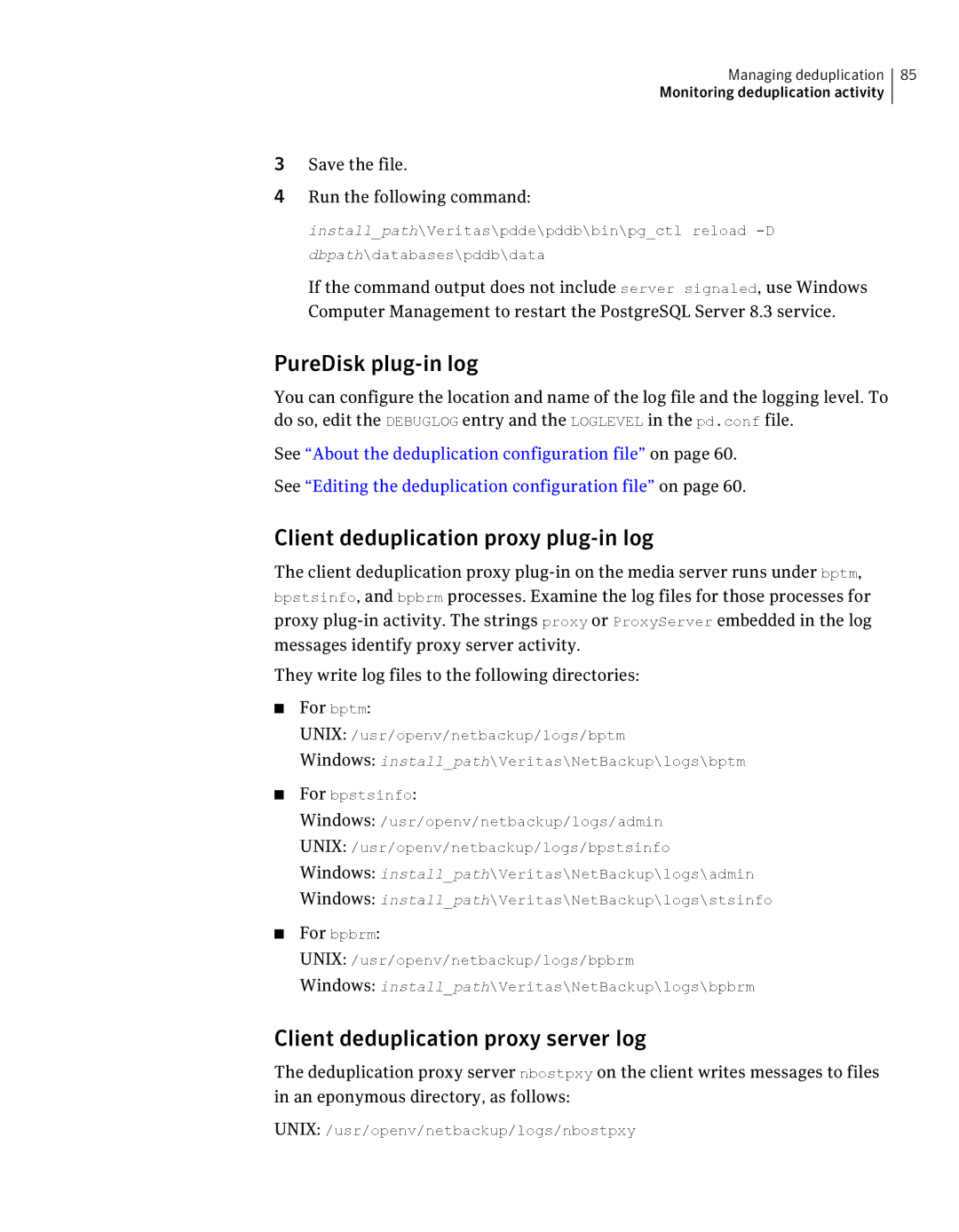Managing deduplication 85
Monitoring deduplication activity
3Save the file.
4Run the following command:
install_path\Veritas\pdde\pddb\bin\pg_ctl reload
If the command output does not include server signaled, use Windows Computer Management to restart the PostgreSQL Server 8.3 service.
PureDisk plug-in log
You can configure the location and name of the log file and the logging level. To do so, edit the DEBUGLOG entry and the LOGLEVEL in the pd.conf file.
See “About the deduplication configuration file” on page 60.
See “Editing the deduplication configuration file” on page 60.
Client deduplication proxy plug-in log
The client deduplication proxy
They write log files to the following directories:
■For bptm:
UNIX: /usr/openv/netbackup/logs/bptm
Windows: install_path\Veritas\NetBackup\logs\bptm
■For bpstsinfo:
Windows: /usr/openv/netbackup/logs/admin
UNIX: /usr/openv/netbackup/logs/bpstsinfo
Windows: install_path\Veritas\NetBackup\logs\admin
Windows: install_path\Veritas\NetBackup\logs\stsinfo
■For bpbrm:
UNIX: /usr/openv/netbackup/logs/bpbrm
Windows: install_path\Veritas\NetBackup\logs\bpbrm
Client deduplication proxy server log
The deduplication proxy server nbostpxy on the client writes messages to files in an eponymous directory, as follows:
UNIX: /usr/openv/netbackup/logs/nbostpxy
